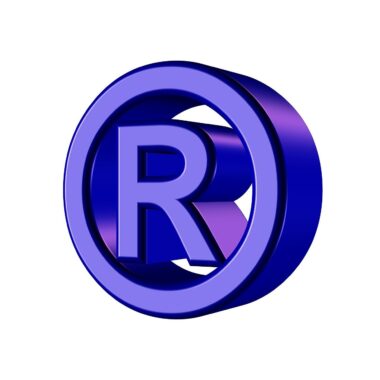How to Choose the Perfect Brand Name: Tips and Strategies
Choosing the right brand name is a crucial step for any business seeking to establish its identity in the marketplace. A great brand name should be memorable, relevant, and evoke positive associations. When brainstorming potential names, consider the essence of your business, the target audience, and the emotions you want to invoke. Check the names against competitors to ensure that your choice stands out. Also, think about the cultural implications of your name; it should resonate positively across diverse markets. Establishing your branding’s tone and personality will help frame these choices and inspire creativity. Ensure that the name can easily transition across different media, whether print, digital, or social. It should also be easy to pronounce and spell. Strong brand names often use common language in novel ways or innovative combinations of words. Don’t shy away from testing your ideas with focus groups or surveys to gauge effectiveness. A unique angle may lead to memorable associations, propelling your brand into the public sphere with confidence and intrigue.
The significance of trademarking can’t be overstated. Trademarking protects your brand name from competitors who might want to capitalize on your hard work and recognition. Registering a trademark not only safeguards your name legally but also prohibits others from using a name that is similar or identical to yours in the same industry. This process requires performing thorough research to ensure that your desired name is indeed available and not infringing upon existing trademarks. Utilize resources like the USPTO trademark database or local copyright offices to conduct these checks. Remember that a strong trademark can add significant value to your business, as it helps in developing brand equity over time. After establishing your brand name, proceed promptly with the trademarking process to reinforce your brand identity. Once trademarked, it enforces your rights and gives you legal standing in cases of potential infringement. Monitoring the marketplace for unauthorized uses of your brand name is essential, as taking early legal action can protect your hard-earned reputation. Investing time and resources into this aspect of brand management is a cornerstone of long-term success.
Another vital aspect of choosing a brand name is ensuring its availability online. In the increasingly digital landscape, securing a matching domain name is essential for brand consistency and visibility. Traditional businesses often face challenges if their brand name is similar to existing websites or social media platforms. Check for domain availability through registrars like GoDaddy or Namecheap to confirm that your chosen name can effectively represent your online presence. Additionally, verify that the name is available on popular social media sites to build your brand across different platforms. A coherent online identity is critical for establishing a strong presence in today’s market. Choose a domain that matches your brand name closely to avoid confusion among customers. Hopefully, the same principle applies to social media handles, which should be easy to remember and spell. It’s recommended to keep your branding simple yet impactful, reinforcing your overall marketing message. In this highly competitive technological era, the right domain name can significantly enhance your brand recognition if executed strategically along with a robust brand name.
Testing your brand name ideas through audience feedback can be a game-changer. It can provide insights on how positioning affects public perception and aids in refining your chosen name. Use surveys or focus groups to present your name options and gather data on their impressions of each option. Questions like, “What feelings does this name evoke?” or “How would you perceive a business with this name?” can help you gauge audience reactions meaningfully. Choose a diverse demographic to get a broad spectrum of feedback, allowing you to understand potential cultural implications of the name. Research also supports engaging potential customers in this stage to foster a sense of ownership towards your brand. This level of involvement can lay the groundwork for loyalty and trust amongst your target audience. Leveraging feedback can help identify red flags you may not see, such as negative associations or potential mispronunciations. After gathering insights, revisit and refine your shortlist accordingly. Ultimately, taking a strategic approach to audience testing can significantly increase the chances of your brand name resonating with customers.
Aligning with Brand Values
Your brand name is a reflection of your company’s values, mission, and vision, so aligning them is vital. Effective brand naming moves beyond mere aesthetic appeal. When customers perceive authenticity, it enhances their connection with the brand, driving loyalty. Focus on your core values and communicating them through your name. A name that reflects your company’s values will draw in audiences who share similar ethics, creating a stronger bond with the brand. Look for words or phrases that clearly express your primary objectives or the essence of what you do. Whether innovative, traditional, or adventurous, the brand name should signal the experience you want to offer to your customers. Avoid names that could mislead consumers about your products or services. Use descriptive and relevant vocabulary carefully to guide customer expectations. Also, consider nuances, tone, and emotions associated with your words. This holistic approach fosters an emotional resonance with the audience, establishing an authentic relationship. Ultimately, a thoughtfully chosen name that aligns with your brand’s vision can create long-lasting connections that stand the test of time.
In the end, a successful brand name encompasses more than just creativity; it embodies strategy, research, and consideration for your target demographic. The naming process requires time and thorough deliberation to ensure your choice aligns with your business’s long-term goals while capturing public interest. Rushing this phase can lead to significant brand complications later on. Seek out opportunities to brainstorm collectively with key stakeholders to generate ideas efficiently. Use tools like mind mapping or brand naming software to inspire creativity and collaboration. Sometimes, stepping away from your first ideas and allowing them to mature can offer new insights or spark fresh connections to your brand identity. Additionally, remember that market trends are evolving. Keeping an eye on current trends can lend insight into naming conventions that are resonating in your ongoing market landscape. Revisit your concepts, refine, and adapt them as necessary. The urge to stay true to your name while maintaining relevance should guide the journey of selecting a brand name. Ultimately, the right name empowers your business and enhances your position in an ever-evolving marketplace.
Finalizing your brand name should include comprehensive legal checks, ensuring not just trademark registration but also its compliance with regulations and industry norms. This final step is where you ensure all aspects are thoroughly vetted and clear of potential conflicts. Inquiries should address all possible trademark conflicts and investigate if there are related businesses that could lead to confusion among consumers. Securing a legal expert’s review can optimize this process, advising you on the nuances of intellectual property law relevant to your sector. Document all findings and address any concerns before moving forward with branding initiatives. A name that may seem attractive at first could turn problematic if it infringes upon someone else’s established rights. Taking this precautionary step can save you significant costs, allowing you to focus on brand development rather than addressing legal issues. Additionally, consider protective strategies, like incorporating terms that increase distinguishability from competitors. This due diligence closes any legal loopholes and ensures that your chosen name supports your branding goals effectively. Solidifying your brand name with researched legal backing lays the groundwork for a solid brand identity, reinforcing your success.





